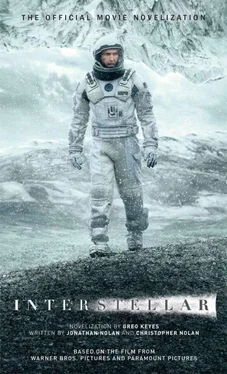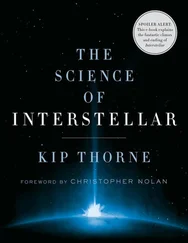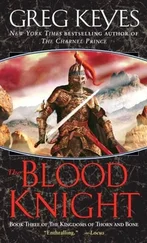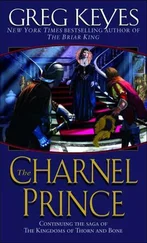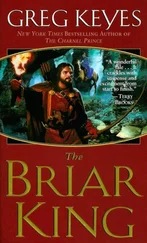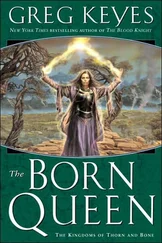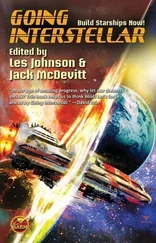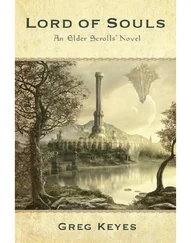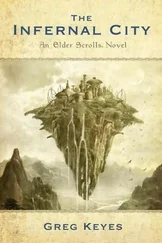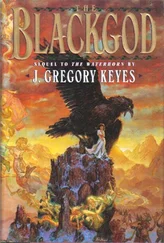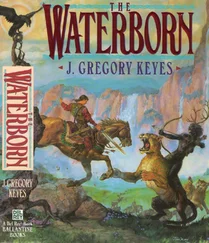“Tell me this is where you explain how you’re going to save the world,” he said.
* * *
Their next stop was another room, this one on a scale that dwarfed even the last. But this time he knew instantly what he was seeing, and it brought long-buried feelings rushing back, hard.
It was a multi-stage rocket—a big one—contained in a vastly larger cylindrical chamber. In fact, the launch chamber seemed far larger than necessary, by several orders of magnitude. He felt like an ant in a grain silo. High, high above, light shone, this time unmistakably that of the sun, reflected in by a ring of mirrors.
From the look of things, it appeared to be dawn outside.
“We’re not meant to save the world,” Professor Brand said. “We’re meant to leave it.”
Cooper couldn’t take his eyes off of the rocket. He let his gaze travel up, taking in every beautiful inch of her, not in a hurry. When he reached the top he saw two sleek craft mounted there, belly-to-belly, and he knew them.
“Rangers,” he murmured. Lineal descendants of the rocket planes like the X-15, and the space shuttles that followed, the winged Rangers could maneuver easily in an atmosphere. Unlike their predecessors, however, they were equally suited for deep space—at least in theory. None of them had ever made it there before the program was cut.
Or so he had believed. So he had been told when he was forced to retire, sent to “do his duty” in the fields, almost two decades ago.
“The last components of our one versatile ship in orbit, the Endurance ,” Professor Brand said. “Our final expedition.”
Final , Cooper thought, in a daze. That suggested others. And there had been a fair number of craft in his day. He’d assumed they’d been broken up and recast as farm equipment. But now…
“What happened to the other vehicles?” Cooper asked.
A new, unreadable expression played across the old man’s face.
“The Lazarus missions,” he said.
“Sounds cheerful,” Cooper replied.
“Lazarus came back from the dead—” Dr. Brand began.
“He had to die in the first place,” Cooper interjected. “You sent people out there looking for a new home…?” He trailed off, incredulous, but Professor Brand just nodded as if it all made perfect sense.
“There’s no planet in our solar system that can support life,” Cooper said. “And it’d take them a thousand years to reach the nearest star. That doesn’t even qualify as futile …” He shook his head. “Where did you send them, Professor?”
“Cooper,” Professor Brand said, “I can’t tell you any more unless you agree to pilot this craft.”
Cooper stared at him, dumbfounded.
“You’re the best we ever had,” the older man added.
What was he talking about? It had been decades. Everything Cooper had experienced, through most of his adult life, told him this whole thing was impossible. And yet…
To be asked to participate sent an undeniable thrill through him.
Which in turn made him more cautious than ever.
“I barely left the stratosphere,” Cooper objected.
“This crew’s never left the simulator ,” the professor said. “We can’t program this mission from Earth, and we don’t know what’s out there. We need a pilot. And this is the mission you were trained for.”
Cooper thought back to his training. Sure as hell no one had ever mentioned anything like this to him. He’d thought Mars, maybe, or Europa at the outside.
“Without ever knowing,” he said. “An hour ago, you didn’t even know I was still alive. And you were going anyway.”
“We had no choice,” Professor Brand said. “But something brought you here. They chose you.”
He felt a little chill at that, remembering Murph’s ghost, the lines in the dust, the coordinates that showed him the way to this place and these people. In the back of his mind, he’d thought he would find the mysterious messenger here, but by now it was clear that wasn’t the case.
Yet from the professor’s words, he understood that there was a messenger. It wasn’t all some figment of his imagination.
“Who’s ‘they?’” he asked.
But the professor fell silent. Cooper knew the drill. The man had baited the hook, and he was biding his time until the fish was firmly on the line.
Cooper thought about it, about the impossibility—and the possibility—of what the professor was saying.
“How long would I be gone?” he finally asked.
“Hard to know,” Brand said. “Years.”
“I’ve got my kids, professor,” he said.
The professor nodded, then looked up, solemn and serious.
“Get out there and save them,” he said.
Years , Cooper thought. Years. And yet, the chance to do this . To live in a dream that had almost faded away; to go out there, push at the boundaries of what was known. To do something that could save his kids, save everyone…
But years?
He met the professor’s gaze.
“Who’s ‘they?’” he repeated.
Back in the conference room, an image of the solar system appeared on the screen, and a fellow who had been introduced to him as Romilly stood next to it.
He was a young man with a smooth, almost polished scalp, a close-cropped beard, black hair and striking dark features. He couldn’t be older than thirty-five. He seemed shy, and spoke in an odd, clipped, almost distracted fashion.
“We started detecting gravitational anomalies almost fifty years ago,” Romilly said. “Mostly small distortions in the upper atmosphere—I believe you encountered one yourself.”
At first Cooper assumed Romilly meant the pattern in Murph’s room, but then the “upper atmosphere” part registered, and his eyes widened as it came back to him.
His instruments going crazy.
Controls ripped from his hands…
“Over the Straights,” he blurted. “My crash—something tripped my fly-by wire.”
“Exactly,” Romilly said. “But the most significant anomaly was this …” Saturn suddenly took front and center, with its banded, ochre clouds, expansive rings, and mysterious moons. But when Romilly zoomed in, it wasn’t on the planet or any of its satellites, but on a small group of stars.
As the magnification increased, Cooper could see they were rippling, as if seen through a perturbed pool of water.
“A disturbance in space-time, out near Saturn,” Romilly said.
Cooper studied the disfigured constellations.
“A wormhole?” Cooper asked, doubtfully. It just didn’t seem possible.
“It appeared forty-eight years ago,” Romilly confirmed.
A wormhole , his brain repeated. A wormhole!
There were two essential problems with star travel. The first was that space was big—really big. Things were really far apart. The nearest star to Earth, other than the sun, was so far away that it took light more than four years to make the trip.
A starship traveling at half the speed of light would require more than sixteen years to make the round trip to their nearest stellar neighbor, Proxima Centauri. But that was moot, because no ship he was aware of could go even the tiniest significant fraction of the speed of light.
So a trip to Proxima would take tens of thousands of years for any ship humanity had ever built. Other stars—the ones more likely to have life-bearing planets—were much, much further away.
But a wormhole… That was the northwest passage of star travel—or more aptly, the Panama Canal—the shortcut that meant you didn’t have to sail all the way around Cape Horn or the Cape of Good Hope, just to get from Hong Kong to New York.
Читать дальше
